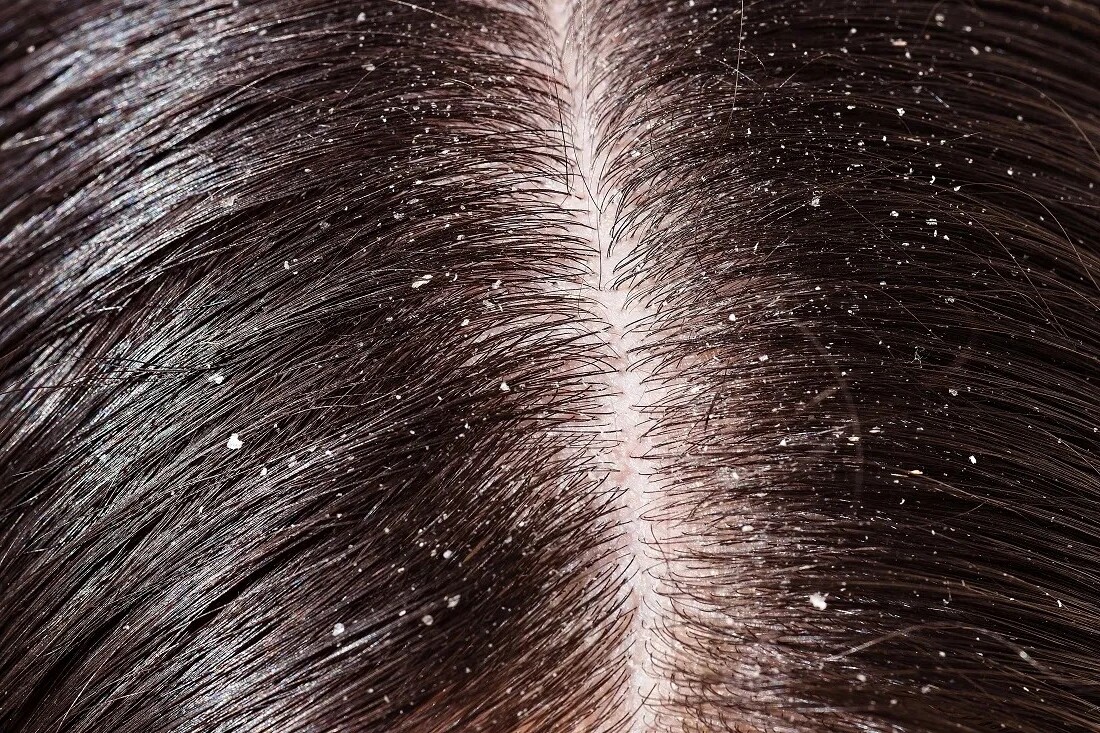Dry scalp tightens, itches and is simply unpleasant! Here you can find out what causes this and what you can do about it.
Dry scalp: Causes
Normally the acid mantle (hydro-lipid layer) protects our skin. This is where the moisture from the skin pores combines with the sebum (lipid). But too little lipid or moisture leads to a dry scalp. Itching, dandruff and feelings of tension can then be the result. Often the hair itself also suffers from this and becomes strawy and brittle. A dry scalp is promoted by:
- Daily hair washing
- Washing hair with hot water
- Blow dry or smooth
- Intensive colouring
- Drying cosmetics (e.g. perfumed shampoo, hair mousse etc.)
- Wrong shampoo
- Poor nutrition
- Cold or hot, dry air (e.g. air conditioning or heating air)
Also (chronic) diseases like seborrhoeic eczema (seborrhoeic dermatitis), psoriasis or neurodermatitis (atopic dermatitis) can lead to dry and scaly scalp.
Depending on the cause, the treatment of dry scalp can be handled differently. If an illness is the cause, discuss suitable treatment measures with your doctor.
Symptoms
If you are not sure whether you have a dry scalp, pay attention to the following symptoms that may occur:
- Itching
- Shed
- Redness
- Burning
- Feelings of tension
Dry scalp: You can do that
If there is no disease behind it, other reasons mentioned above may be decisive. Often it helps to avoid strenuous measures or to get used to healthier ones. This can help against dry and itchy scalp:
- Appropriate shampoo: Use a mild shampoo for dry hair, others may dry out too much. Shampoos with urea or linoleic acid are good for the scalp!
- Avoid heat: It’s best to air-dry hair and leave the hair dryer in the closet. This is gentler on your scalp and your hair! The same applies to washing your hair: lukewarm water is better than hot water.
- Massage: To stimulate sebum production, you can massage your scalp – also works during hair washing!
- Rethink care products: hair setting lotions and the like help with styling, but alcohol-based products degrease the scalp – something you can easily do without.
- Oil treatment: Olive oil for the hair? Olive oil actually helps with dry scalp. Put some of the oil on your scalp, and a pipette will help you apply it. Massage the olive oil well and let it work calmly overnight (Tip: a shower cap prevents a smudged pillow).
- Proper nutrition: What you eat affects your skin! Of course, you don’t have to do without your ice cream in summer 😉, but a balanced diet still provides you (and your skin) with all the necessary nutrients.


Olive oil disrupts the skin barrier. Try argan oil, jojoba oil, and sunflower oil.